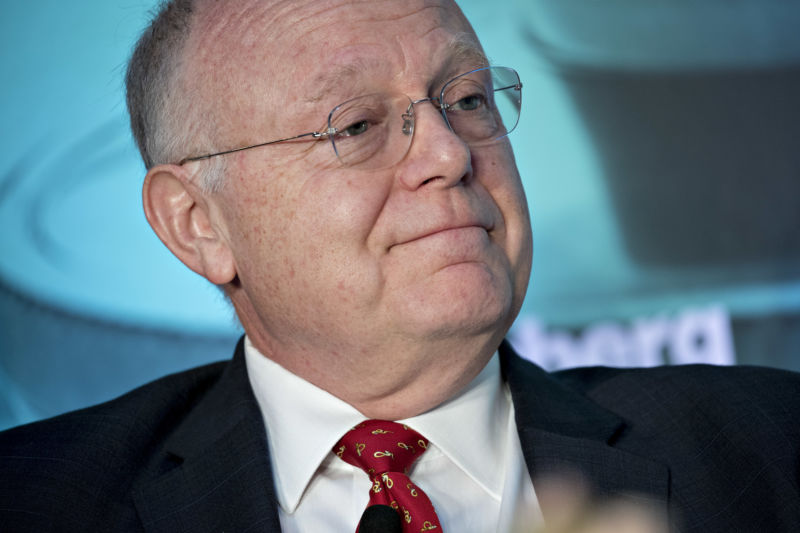Amid drug price increases, Pfizer CEO gets 61% pay raise to $27.9 million

As drug giant Pfizer Inc. hiked the price of dozens of drugs in 2017, it also jacked up the compensation of CEO Ian Read by 61 percent, putting his total compensation at $27.9 million, according to financial filings reported by Bloomberg.
Pfizer’s board reportedly approved the compensation boost because they saw it as a “compelling incentive” to keep Read from retiring. He turns 65 in May. As part of the deal, Read has to stay on through at least next March and is barred from working with a competitor for a minimum of two years after that.
According to Bloomberg, Read’s compensation included in part a salary of $1.96 million, a $2.6 million bonus, $13.1 million in equity awards linked to financial goals and stock price, as well as an $8 million special equity award that will vest if the company’s average stock return goes above 25 percent for 30 consecutive trading days before then end of 2022.
In 2016, Read’s compensation totaled $17.3 million.
The 61 percent raise comes after a string of separate reports noting drug price increases by Pfizer. In January, FiercePharma reported an analysis finding that Pfizer implemented 116 price hikes just between this past December 15 and January 3 of this year. The list price increases ranged from 3 percent to 9.46 percent. The analysts noted that Pfizer increased the price of 20 drugs by 9.44 percent. Those included Viagra, Pristiq, Lipitor, and Zoloft, which are available as generics, as well as Chantix.
Additionally, Pfizer had increased the prices of 91 other drugs by an average of 20 percent in just the first half of 2017, according to data first reported by Financial Times. That included two waves of price hikes, one in January and the other on June 1.
That echoes the pattern seen in 2016, 2015, and 2014, according to a report by STAT. In June of 2016, Pfizer raised the list prices of its medicines by an average of 8.8 percent. That followed an average 10.4 percent raise in list prices in January of that year.
In response to the price hikes reported earlier this year, a Pfizer spokesperson told FiercePharma that the company “takes a measured and responsible approach to pricing.” The spokesperson added that Pfizer provides assistance programs to some eligible patients with financial hardships. However, such discount and assistance programs don’t spare insurance companies from picking up larger tabs, which contributes to higher premiums and system-wide costs.
Pfizer did not immediately respond to a request for comment from Ars.
The price hikes come amid a national outrage over the high prices of medications and healthcare overall. A recent analysis published in JAMA compared healthcare spending in the US to 10 other high-income countries. It found that the US paid nearly twice as much but performed less well. The main drivers of higher prices, researchers found, were high administrative costs, devices, and pricy medicines.
https://arstechnica.com/?p=1276781